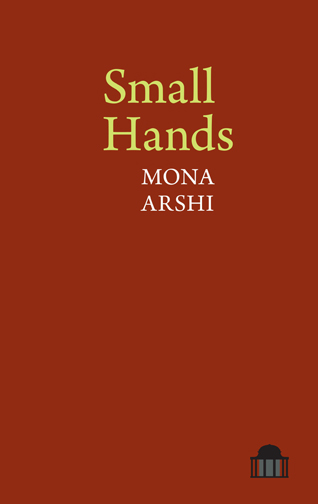Poetry
Hummingbird:
Sikh-Briton Poet Wins Felix Dennis Poetry Prize
NEWS REPORT
Mona Arshi’s ‘Small Hands’ (Liverpool University Press) has won the Felix Dennis Prize for Best First Collection.
The Sikh-Briton who spent ten years as a human-rights lawyer, drew on both her legal experience and her Sikh-Punjabi heritage for her debut collection, which the jury praised for its “imagination, sensuality and beguiling playfulness”.
They particularly admired her “beautiful precision and her willingness to experiment with form, including couplets, ghazals, sonnets and prose poetry.”
They also remarked on the subtlety with which she left her mark on the reader’s memory, whether writing about the iniquity of using “shop-bought garam masala” or the case of right-to-die campaigner Diane Pretty, whom she represented as a lawyer.
BIO
Sikh-Briton Mona Arshi was born in West London, United Kingdom, and grew up in Hounslow.
She initially trained as a lawyer and worked for ‘Liberty’, the UK human rights organisation, for several years undertaking test case litigation under the Human Rights Act. She acted on many high profile judicial review cases including Diane Pretty’s ‘right to die’ case, asylum destitution cases and death in custody cases.
She began writing poetry in 2008. She began a Master’s in Creative Writing (Poetry strand) at the University of East Anglia in 2010. She was tutored by George Szirtes, Lavinia Greenlaw and Moniza Alvi.
Mona’s poem ‘Hummingbird’ won first prize in the Magma Magazine poetry competition in 2012. She was one of the Competition winners for the World Events Young Artists Festival in September 2012; and an award winner in the Troubadour International Competition for her poem ‘Bad day in the Office’. In 2014, she was joint winner of the Manchester Creative Writing Competition.
A portfolio of her poems appeared in ‘TEN - THE NEW WAVE’ (edited by Karen Macarthy-Woolf) in 2014 by Bloodaxe Books.
Mona’s poetry has been published widely in magazines including Poetry Review, Magma, Rialto and The Sunday Times.
She has read her poems at many venues in London including the Troubadour, the London Review of Books as well as the Southbank. She has also performed at festivals in the UK including Ledbury and Bridlington.
* * * * *
Two Poems by Mona Arshi
HUMMINGBIRD
Ask the stems in the glass to bend. Let
Your fingers fly, a momentary grasp then
slip into spaces, surge in and out of folds
where breasts begin to curve and rise.
Be God. Press your curing skin to mine,
dissolve and pronounce me. Let my eyes
fallout and embed in the carpet, rooting.
Let my hands arrange the air for you,
braiding. Reluctant sun at the window, open
your eyes burn through the dense haze with
your severe love. Slide open the bone-zip of
my spine, anoint each rigid peak. Take my
limbs and fold me over. Here's my mouth,
hummingbird, linger there, and hold
my breath.
[First prize winner of the Magma Magazine poetry competition.]
* * * * *
MY MOTHER'S HAIR
My mother's thin salwar gives her away.
Her plait snakes across her back, and turns
to whispers at the ends.
Can we touch it? They ask in the icy playground.
She shyly places the dark coil in their hands.
After bathing, it is transformed, rope
released from its binding fibres and falls
into a heavy curtain onto her shoulders.
Steaming by the old radiator, she sits,
with her pan of dried pulses,
discarding tiny masquerading stones,
she leaves a trail of whispers on the floor.
* * * * *
September 30, 2015
Conversation about this article
1: Amarjit Singh Chandan (London, United Kingdom), September 30, 2015, 11:07 AM.
The late English poet Dannie Abse once told me that a poet is known for three poems. Then he corrected himself: No, just for one poem. I told him: Rest assured, Danny, you've written more than three poems. Mona Arshi with her debut collection 'Small Hands' has made her name. It is English poetry's gain. I think, her poem 'Hummingbird' is a classic. She will always be known for this poem. I wonder why this kind of poem cannot be written in Punjabi. One of the reasons is that our language is inhibited, reflecting our attitude to life and to sex in particular. I have dared to write intimate poems in Punjabi, breaking taboos, but I find 'Hummingbird' rather hard to translate in the language. I wish Mona would write one or two poems in Punjabi ... at least for her mother.
2: Roop Dhillon (London, United Kingdom), September 30, 2015, 8:09 PM.
Amarjit ji, I believe it can be done in Punjabi ... the language is not inhibited.




